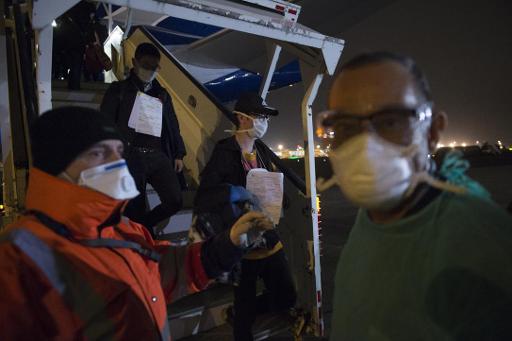The World Health Organisation (WHO) reported on Monday that the number of confirmed cases globally were 79,331. China has reported 77,262 confirmed cases (97,4 % of all cases), including 2,595 deaths. Outside China, there are 2,060 confirmed cases in 29 countries, with 23 deaths.
“We’re encouraged by the continued decline in cases in China,” said WHO Director-General Dr Tedros Adhanom Ghebreyesus and referred to a WHO-China joint mission that just had concluded its visit and delivered a report.
The team found that the epidemic has peaked and plateaued between 23 January and 2 February, and has been declining steadily since then. They also found that there has been no significant change in the DNA of the virus. The fatality rate is between 2% and 4% in Wuhan, and 0.7% outside Wuhan.
For people with mild disease, recovery time is about two weeks, while people with severe or critical disease recover within three to six weeks. The team also estimated that the measures taken in China have averted a significant number of cases.
If the WHO Director-General sounded pessimistic only a few days ago, he said yesterday that, “the key message that should give all countries hope, courage and confidence is that this virus can be contained”.
That said, he also noted that the sudden increases of cases in Italy, Iran and South Korea are deeply concerning and have given rise to speculations about whether these increases mean that the epidemic has now become a pandemic.
“Does this virus have pandemic potential? Absolutely, it has. Are we there yet? From our assessment, not yet. We must focus on containment, while doing everything we can to prepare for a potential pandemic. Every country must make its own risk assessment for its own context.”
Dr Tedros Adhanom Ghebreyesus also thanked the EU for its contribution of €232 million, “which demonstrates the kind of global solidarity that gives me hope”. The assistance was announced yesterday by Commissioners Janez Lenarcic and Stella Kyriakides.
EU assessment
A WHO-led team of experts from the WHO and the European Centre for Disease Prevention and Control (ECDC) arrived in Italy already on Monday to support the Italian authorities in understanding the situation.
“While limited local person-to-person transmission of Covid-19 in countries outside of China was expected, the rapid increase in reported cases in Italy over the past two days is of concern. However, it should also be noted that based on current data, in the majority of cases (4 out of every 5) people experience mild or no symptoms,” the team reported yesterday evening.
According to ECDC’s own risk assessment published yesterday, the risk of the occurrence of clusters, similar to the ones in Italy, associated with Covid-19 in other countries in the EU/EEA and the UK, is currently considered to be moderate to high.
“The accumulated evidence from clusters reported in the EU/EEA and the UK indicates that once imported, the virus causing Covid-19 can transmit rapidly,” according to the risk assessment. In Italy, “the rigorous public health measures that were implemented immediately after identifying the Italian Covid-19 cases will reduce the impact of such outbreaks as well as the further spread”.
The Commission also convened yesterday the Health Security Committee with participation of all member states. According to the notes following the meeting, Italy informed the committee about the outbreak of the coronavirus in certain areas in the north of the country and the ECDC presented its updated risk assessment.
As regards “next steps”, the Commission “prompted the Committee to consider questions on preparedness and response planning within countries, including on measures at points of entry, capacities for contract tracing, laboratory capacities and management of cases considering the evolving situation and changes in scenarios.”
Travel restrictions
Apparently coordinated travel restrictions and border controls in the EU were not discussed by the Health Security Committed. The issue was a focus of the Commission’s press briefings on Monday. For the time being, the Commission prefers to await what the WHO will recommend and the results of the joint WHO-EU fact-finding mission to Italy.
The message given was that the health systems in the member states are well prepared to deal with the situation but that the situation is evolving daily.
In regard to its own staff, the Commission has limited staff travels to China to essential work missions and offered returning staff to work from home. Asked about the health of its own top officials, who are travelling extensively, the spokespersons assured that they were in good health. No decision has been taken yet whether the planned EU-China summit will be cancelled.
Asked by The Brussels Times about travelling, WHO referred to its website where it publishes travel advice. The advice has until now mostly dealt with usual travel precautions. In its latest advice, dated 11 February, WHO stated that it “did not recommend any travel or trade restrictions, based on the current information available”.
“Such restrictions, however, need to be short in duration, proportionate to the public health risks, and be reconsidered regularly as the situation evolves.”
The Brussels Times

